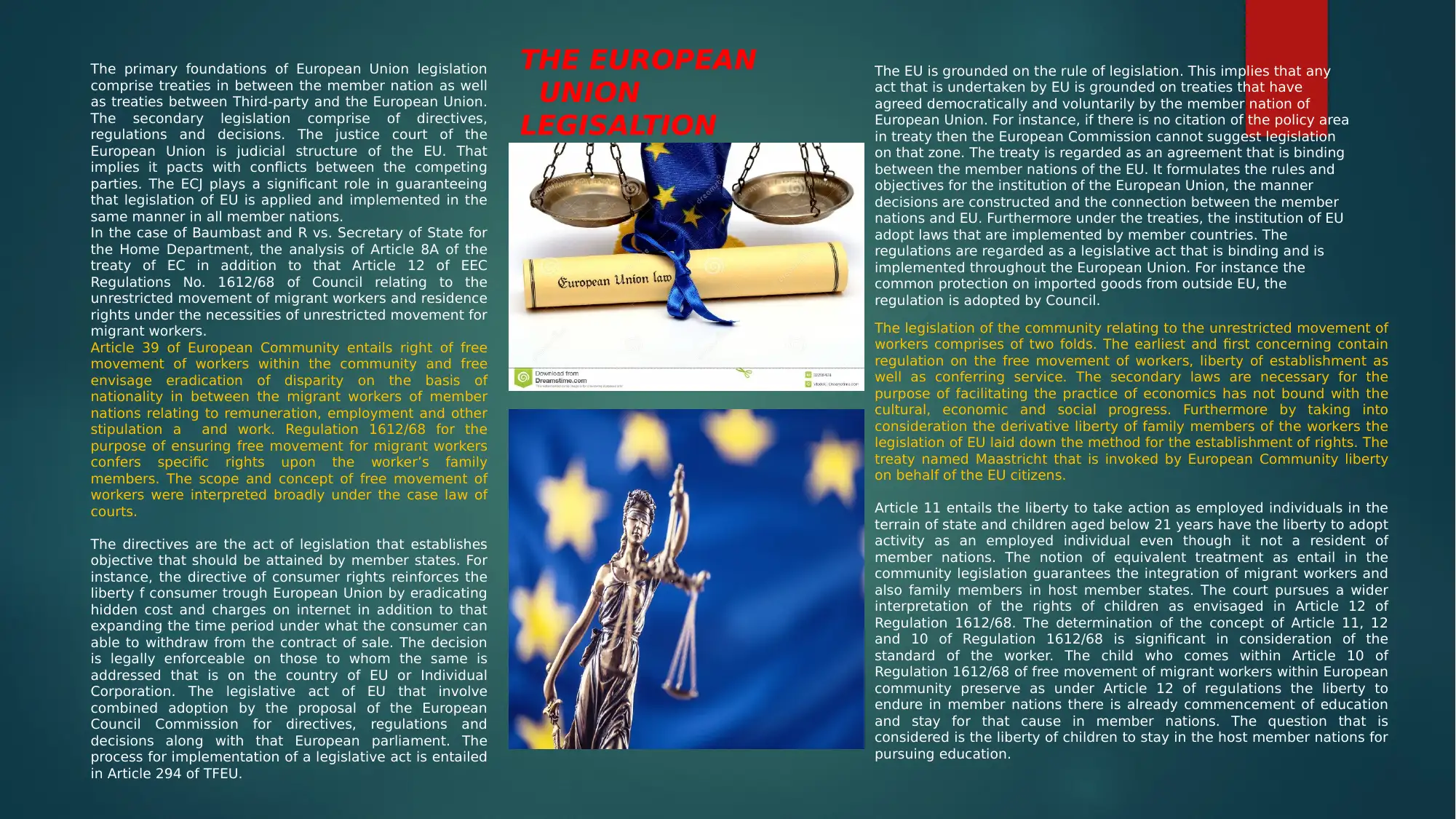European Union Legislation: Treaties, Directives, and Worker Rights
VerifiedAdded on 2022/08/16
|1
|834
|12
Essay
AI Summary
This assignment provides an overview of the primary and secondary legislation within the European Union. It outlines the significance of EU treaties, directives, regulations, and decisions, emphasizing the role of the European Court of Justice (ECJ) in upholding EU law. The document analyzes the case of Baumbast and R vs. Secretary of State for the Home Department, and it explores the implications of Article 8A of the Treaty of the EC, along with Article 12 of EEC Regulation No. 1612/68, concerning the free movement of migrant workers. The analysis includes the scope of Article 39 of the European Community, which addresses the free movement of workers within the community, and the rights conferred upon workers' families. Furthermore, it discusses directives, decisions, and the legislative process within the EU, including the role of the European Council, Commission, and Parliament. The assignment also examines the notion of equivalent treatment, the rights of children, and the legal basis of the EU, emphasizing the importance of treaties in shaping EU law. This document delves into the core concepts of EU legislation, offering a comprehensive view of worker rights and the free movement of people within the European Union.







![[object Object]](/_next/static/media/star-bottom.7253800d.svg)